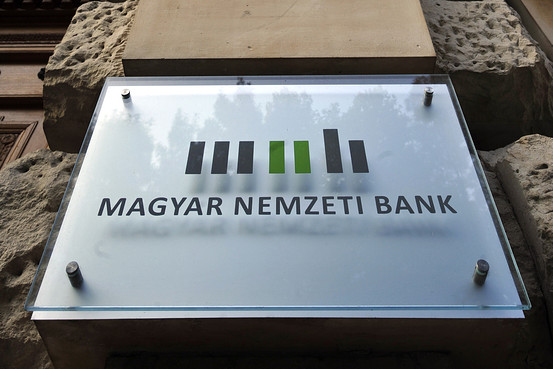Eurostat has reservation over MNB foundationsʼ classification

In a note to a statistical release on deficit and debt data for 2017, the EUʼs statistics office Eurostat expressed its reservation Monday over the way Hungary classifies the foundations of the National Bank of Hungary (MNB) in its national accounts statistics, arguing that they should be included in the general government sector.
Eurostat said it considers that these foundations, including their subsidiaries, should be classified inside the general government, national news agency MTI reported.
According to a document on Eurostatʼs website dated April 16 and addressed to Gabriella Vukovich, president of Hungaryʼs Central Statistical Office (KSH), Eurostat carried out an analysis of the classification of the foundations with input from KSH officials.
Eurostat concluded that "for the purposes of statistical classification under ESA rules, the MNBʼs foundations are government-controlled non-profit units and non-market producers and should, therefore, be classified in the general government sector." It added that, similarly, "subsidiaries established or later acquired by the foundations are deemed to be artificial subsidiaries and should, therefore, be consolidated with their immediate parent(s)."
Assets of the MNBʼs Pallas Athéné Foundations came to HUF 269.8 billion at the end of March, the foundationsʼ asset manager said earlier. The assets included HUF 95.8 bln in real estate, HUF 62.3 bln in investment fund units, HUF 56.1 bln in corporate bonds, HUF 30.2 bln in bank deposits, and HUF 25.3 bln in government securities, MTI reported.
The foundations have scaled back their holdings of government securities since 2016, in line with the stand of the European Central Bank which earlier warned that the portfolio "could be perceived as being potentially in conflict with the monetary financing prohibition."
In Mondayʼs release, Eurostat noted that it is withdrawing its earlier reservation on the quality of data reported by Hungary in relation to the sector classification of Eximbank (Hungarian Export-Import Bank), due to the reclassification of Eximbank inside the general government undertaken by the Hungarian statistical authorities.
Hungaryʼs general government had a deficit of 2% of GDP in 2017, up from a 1.7% deficit in 2016, but government debt as a percentage of GDP fell to 73.6% by 2017, from 76.0% in 2016, Eurostat said in a first notification on Monday. The figures released by Eurostat are unchanged from the preliminary figures it received in Hungaryʼs Excessive Deficit Procedure report on April 4.
SUPPORT THE BUDAPEST BUSINESS JOURNAL
Producing journalism that is worthy of the name is a costly business. For 27 years, the publishers, editors and reporters of the Budapest Business Journal have striven to bring you business news that works, information that you can trust, that is factual, accurate and presented without fear or favor.
Newspaper organizations across the globe have struggled to find a business model that allows them to continue to excel, without compromising their ability to perform. Most recently, some have experimented with the idea of involving their most important stakeholders, their readers.
We would like to offer that same opportunity to our readers. We would like to invite you to help us deliver the quality business journalism you require. Hit our Support the BBJ button and you can choose the how much and how often you send us your contributions.









